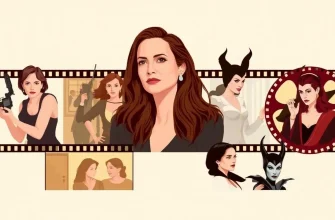The allure of royalty has always captivated audiences, and the lives of emperors and empresses provide a rich tapestry of drama, power, and intrigue. This curated list of ten films delves into the opulent and often tumultuous lives of these historical figures, offering viewers a blend of historical accuracy, dramatic storytelling, and cinematic splendor. From ancient Rome to the courts of China, these films not only entertain but also educate, providing insights into the complexities of ruling an empire.

The Emperor Jones (1933)
Description: Based on Eugene O'Neill's play, this film follows Brutus Jones, an African-American who becomes the emperor of a Caribbean island, exploring themes of power, race, and imperialism.
Fact: Paul Robeson, who played Jones, was one of the first African-American actors to achieve international fame, and his performance in this film was critically acclaimed.
 Watch Now
Watch Now 
The Fall of the Roman Empire (1964)
Description: This epic historical drama depicts the decline of the Roman Empire, focusing on the reigns of Marcus Aurelius and his son Commodus, showcasing the internal decay that led to the empire's fall.
Fact: The film was one of the most expensive of its time, with a budget of $20 million, and it was shot on location in Spain to replicate the grandeur of Rome.
 Watch Now
Watch Now 
The Last Emperor (1987)
Description: This biographical drama chronicles the life of Puyi, the last Emperor of China, from his ascension to the throne at age two to his later years under Communist rule. It provides an intimate look at the end of an imperial era.
Fact: The film was the first Western production allowed to film in the Forbidden City in Beijing, and it won nine Academy Awards, including Best Picture.
 Watch Now
Watch Now 
The Emperor's New Groove (2000)
Description: A comedic take on the life of an emperor, this animated film follows Emperor Kuzco, who is turned into a llama by his power-hungry advisor, Yzma. It's a light-hearted exploration of leadership and humility.
Fact: Originally intended as a more serious musical, it was transformed into a comedy during production, and it features the voice talents of David Spade and John Goodman.
 Watch Now
Watch Now 
Elizabeth (1998)
Description: While not an empress, Queen Elizabeth I's reign is pivotal in English history. This film explores her early years on the throne, her transformation into the "Virgin Queen," and her consolidation of power.
Fact: Cate Blanchett's portrayal of Elizabeth I earned her an Academy Award nomination, and the film's costumes were highly praised for their historical accuracy.
 Watch Now
Watch Now 
Gladiator (2000)
Description: This epic tale follows Maximus Decimus Meridius, a Roman general betrayed by the corrupt Commodus, who becomes an emperor after his father's death. The film showcases the power struggles within the Roman Empire, highlighting the role of the emperor.
Fact: Ridley Scott's vision for the film was influenced by the historical figure of Marcus Aurelius, and the Colosseum scenes were shot in a specially built arena in Malta.
 Watch Now
Watch Now 
The Emperor's Shadow (1996)
Description: Set during the Qin dynasty, this film tells the story of the relationship between Emperor Qin Shi Huang and his court musician, highlighting the personal sacrifices made for power.
Fact: It was one of the first Chinese films to gain international recognition, showcasing the historical figure of Qin Shi Huang, the first emperor of a unified China.
 30 Days Free
30 Days Free 
The Emperor's Club (2002)
Description: While not about an emperor, this film explores the influence of a teacher on his students, one of whom is named after Emperor Augustus, reflecting on the legacy and impact of leadership.
Fact: The film was inspired by the short story "The Palace Thief" by Ethan Canin, and Kevin Kline's performance as the teacher was critically acclaimed.
 30 Days Free
30 Days Free 
The Empress and the Warrior (2006)
Description: This Chinese epic follows the journey of a peasant girl who becomes an empress, exploring themes of destiny, power, and love amidst the backdrop of ancient China.
Fact: The film was a major box office success in China and features stunning martial arts sequences choreographed by Yuen Woo-ping.
 30 Days Free
30 Days Free 
The Empress Dowager (1975)
Description: This film portrays the life of Empress Dowager Cixi, who ruled China behind the scenes during the late Qing dynasty, offering a glimpse into the political machinations of the imperial court.
Fact: The film was one of the first to portray Cixi in a somewhat sympathetic light, diverging from the traditional villainous depiction.
 30 Days Free
30 Days Free 








